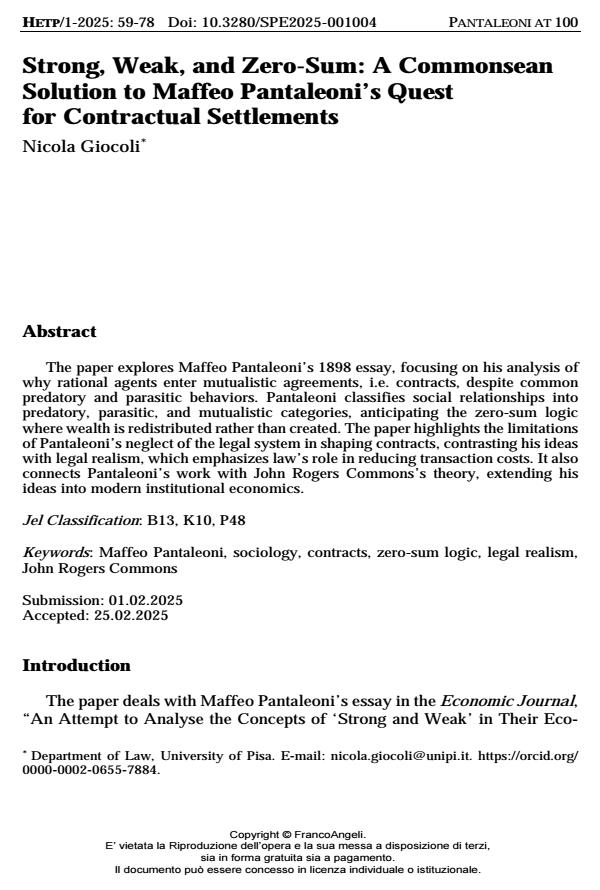Strong, Weak, and Zero-Sum: A Commonsean Solution to Maffeo Pantaleoni’s Quest for Contractual Settlements
Titolo Rivista HISTORY OF ECONOMIC THOUGHT AND POLICY
Autori/Curatori Nicola Giocoli
Anno di pubblicazione 2025 Fascicolo 2025/1
Lingua Inglese Numero pagine 21 P. 59-79 Dimensione file 91 KB
DOI 10.3280/SPE2025-001004
Il DOI è il codice a barre della proprietà intellettuale: per saperne di più
clicca qui
Qui sotto puoi vedere in anteprima la prima pagina di questo articolo.
Se questo articolo ti interessa, lo puoi acquistare (e scaricare in formato pdf) seguendo le facili indicazioni per acquistare il download credit. Acquista Download Credits per scaricare questo Articolo in formato PDF

FrancoAngeli è membro della Publishers International Linking Association, Inc (PILA)associazione indipendente e non profit per facilitare (attraverso i servizi tecnologici implementati da CrossRef.org) l’accesso degli studiosi ai contenuti digitali nelle pubblicazioni professionali e scientifiche
The paper explores Maffeo Pantaleoni’s 1898 essay, focusing on his analysis of why rational agents enter mutualistic agreements, i.e. contracts, despite common predatory and parasitic behaviors. Pantaleoni classifies social relationships into predatory, parasitic, and mutualistic categories, anticipating the zero-sum logic where wealth is redistributed rather than created. The paper highlights the limitations of Pantaleoni’s neglect of the legal system in shaping contracts, contrasting his ideas with legal realism, which emphasizes law’s role in reducing transaction costs. It also connects Pantaleoni’s work with John Rogers Commons’s theory, extending his ideas into modern institutional economics.
Parole chiave:Maffeo Pantaleoni, sociology, contracts, zero-sum logic, legal realism, John Rogers Commons
Jel codes:B13, K10, P48
Nicola Giocoli, Strong, Weak, and Zero-Sum: A Commonsean Solution to Maffeo Pantaleoni’s Quest for Contractual Settlements in "HISTORY OF ECONOMIC THOUGHT AND POLICY" 1/2025, pp 59-79, DOI: 10.3280/SPE2025-001004